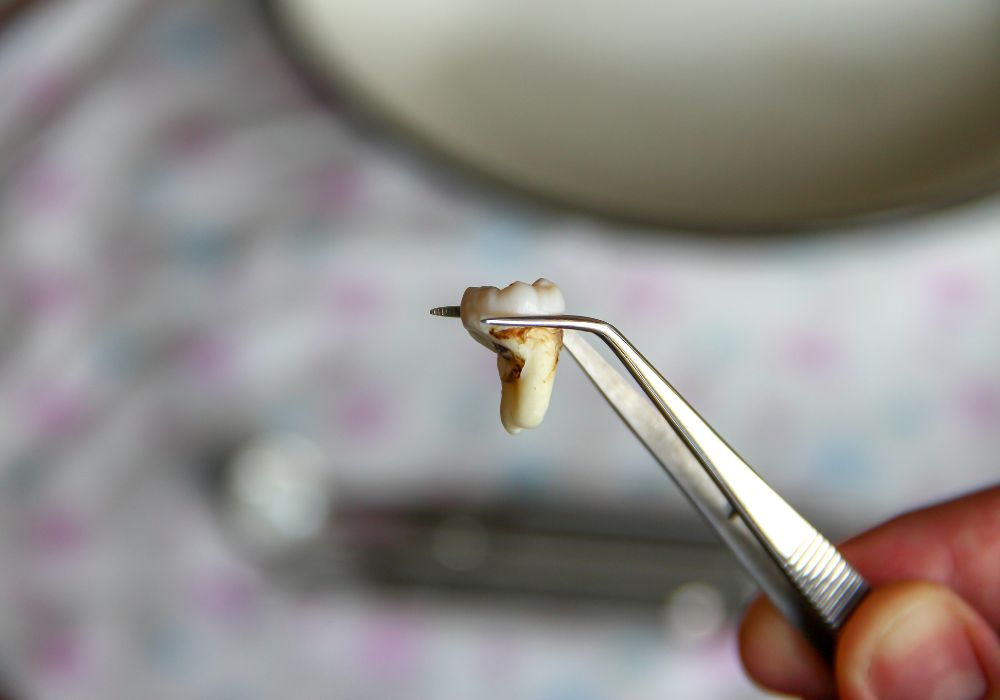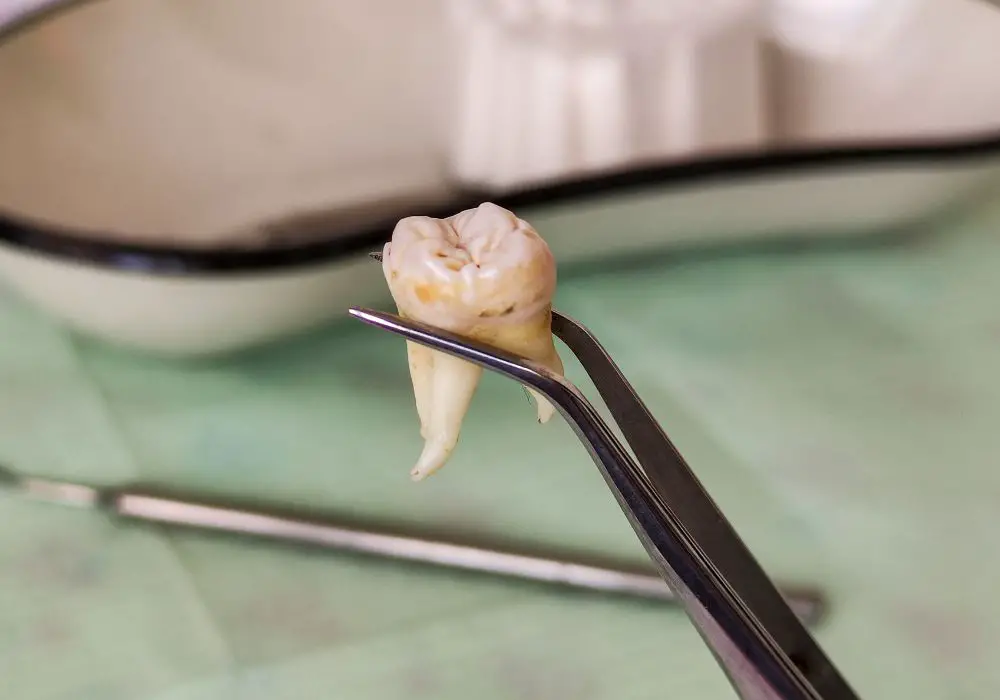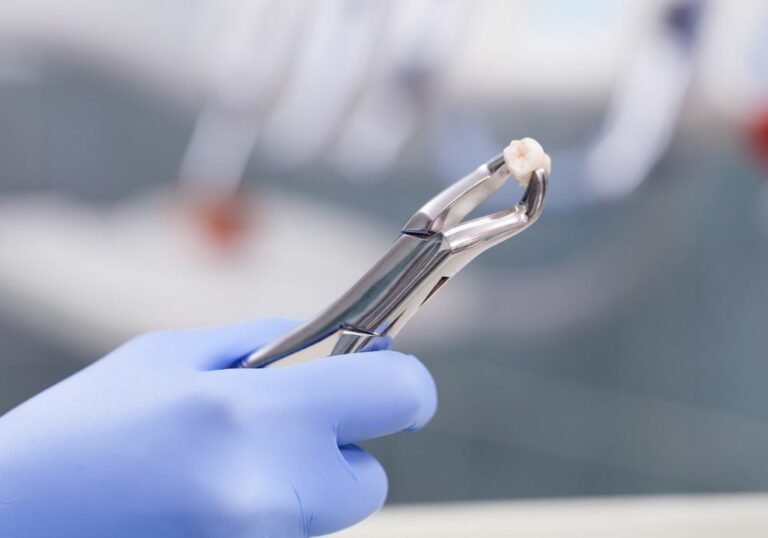Wisdom teeth removal is one of the most common dental surgeries performed, with over 5 million wisdom teeth extracted each year in the United States alone. However, it also remains one of the most expensive procedures in dentistry, with average costs exceeding $1,000 per tooth even with insurance. Below we’ll explore the key reasons why wisdom teeth extractions come with such a high price tag.
Wisdom teeth are more difficult to remove

The main factor making wisdom teeth removal expensive is that it’s substantially more complex than extracting anterior teeth. Wisdom teeth are located at the far back of the mouth, often with little room to erupt properly due to the jaw size. They commonly develop in an impacted position, which means the tooth is trapped below the gums and jawbone or only partially erupted through the gums.
These impactions make wisdom teeth extremely challenging to extract. The oral surgeon cannot simply numb the area and pull the tooth out like they would an anterior tooth. Here are some of the complications they have to contend with:
- Partial bone impaction – When the tooth is partially encased in bone. Requires surgically cutting away bone to free the tooth.
- Full bony impaction – The entire tooth is trapped inside the jawbone. This is the most difficult impaction to remove.
- Vertical impaction – The wisdom tooth grows at an angle instead of vertically. Needs to be sectioned into pieces for removal.
- Soft tissue impaction – The tooth is covered by gum tissue preventing it from erupting fully. Gum tissue must be cut and detached to access the tooth.
- Adjacent tooth damage – An impacted wisdom tooth pushes up against the root of the neighboring molar. The adjacent tooth root can become damaged during extraction.
- Nerve proximity – The tooth’s roots are dangerously close to the inferior alveolar nerve. This places the nerve at risk of injury during extraction.
To successfully remove impacted wisdom teeth, the oral surgeon needs to carefully cut away gum tissue, drill/chisel away sections of bone, cut or section the tooth into smaller fragments if necessary, all while avoiding nerve damage or excessive bleeding. This level of surgical skill necessitates a price premium compared to more straightforward extractions.
IV sedation and anesthesia carries added fees
Due to the degree of invasiveness, wisdom tooth removal cannot be performed under local anesthesia alone while the patient is awake. IV sedation or general anesthesia is mandatory for impacted extractions, contributing significantly to the cost:
- Local anesthesia – The area around the tooth is numbed using lidocaine injections. This is only an option for simple, non-impacted wisdom tooth removal.
- IV sedation – Sedative drugs like benzodiazepines and narcotics are administered intravenously to deeply relax the patient. You are awake but highly drowsy.
- General anesthesia – Patients are put fully unconscious under general anesthesia. This allows for a pain-free surgery but requires an anesthesiologist to monitor your vitals.
Both IV sedation and general anesthesia add substantial fees to the procedure, ranging from $200 – $500+ per tooth removed depending on the anesthesia time required. There are also greater health risks associated with sedation/general anesthesia compared to local anesthesia alone.
It takes more chair time than typical extractions

Standard tooth extractions like anterior teeth often take less than 30 minutes total chair time including numbness onset. By contrast, wisdom tooth removal takes considerably longer depending on difficulty:
- Simple extraction with local anesthesia – 30 minutes
- Surgical extractions under sedation – 45 minutes to over 1 hour per tooth
- Complex impactions over 2 hours – Hourly surgical fees apply
The longer time in the dental chair under anesthesia results in higher fees from both the oral surgeon and anesthesiologist’s services. Multiple teeth removed at once will cost more than spaced out separate appointments.
Oral surgeons charge premium rates
While some general dentists perform wisdom tooth extraction, oral surgeons are the specialists trained to handle complicated impactions. Oral surgeons must complete 4+ years of training after dental school, allowing them to charge significantly higher rates.
The American Dental Association reports the average fees for oral surgeons are:
- Non-surgical extraction – $225-$400 per tooth
- Surgical extraction – $375-$1,000+ per tooth
Compare this to general dentist charges of just $75-$200 per extraction. For complex procedures, oral surgeons’ expertise delivers superior results and reduces risks of issues like nerve damage.
It’s considered an “elective” procedure by insurance
The majority of dental plans do not classify wisdom tooth removal as essential, even if impacted. This means coverage is usually lower compared to restorative procedures or non-elective extractions. Expect to still have hefty out-of-pocket costs.
Typical insurance limitations include:
- Wisdom teeth extractions applying to annual basic services limits, not the major services limit.
- High deductibles of $50+ per tooth removed.
- Low benefit amounts like 50% coinsurance.
- Exclusions if wisdom teeth are asymptomatic. Complete impactions are more likely to receive benefits.
Always obtain a pre-treatment estimate from the insurance company to avoid surprises on your share of the bill.
Additional expenses add up

When budgeting for your wisdom tooth extraction, be aware the oral surgeon’s fee is only part of the total cost. You’ll also commonly get billed separately for:
- Initial exam by the surgeon ($75-$200)
- Panoramic x-rays ($100-$250)
- CBCT scan for 3D views ($250-$500)
- Anesthesiologist fees for IV sedation/general anesthesia ($200+ per tooth)
- Medications for infection and pain relief ($30-$60)
- 1-2 follow up visits post-surgery ($50-$100 per visit)
The above items will either need to be paid completely out-of-pocket or apply to your plan deductibles/annual maximums. Keep the additional expenses in mind when estimating the total costs.
Geographical location makes a difference
Where you undergo wisdom tooth extraction can significantly impact the rates you pay. Fees are markedly higher in major metropolitan cities compared to rural areas.
For example, average costs in different U.S. cities are:
| City | Price Range |
|---|---|
| New York City | $1,500 – $2,500 per tooth |
| Chicago | $800 – $1,600 per tooth |
| Houston | $400 – $1,000 per tooth |
| Phoenix | $300 – $800 per tooth |
Consider traveling to a lower-cost area to potentially save hundreds, provided you can find an oral surgeon you’re comfortable with.
Frequently Asked Questions
What makes wisdom teeth extractions more expensive than other teeth extractions?
The surgical complexity involved with extracting impacted wisdom teeth and the need for anesthesia makes the procedure much more expensive than pulling other teeth. Wisdom teeth have longer roots, are harder to numb, and require cutting away bone and stitches.
Should I consider wisdom tooth extraction if they have not erupted fully?
This depends on your specific case. While proactive removal of asymptomatic wisdom teeth is considered “elective”, studies show fully impacted teeth eventually cause problems in over 50% of people by age 50. Have your dentist evaluate if removal is recommended even if pain-free.
How can I reduce the costs for wisdom tooth surgery?
Ask if paying cash upfront earns you a discount. Compare prices between different oral surgeons and opt for general anesthesia vs. IV sedation if there is a large price difference. If you live in a high cost metro, consider traveling to a suburban or rural clinic.
What costs more – general anesthesia or IV sedation?
General anesthesia costs significantly more – generally around $200+ more per tooth. This is because it requires an anesthesiologist to monitor you whereas IV sedation does not. However, you’ll be fully unconscious and recall nothing with general anesthesia.
Why won’t my dental insurance cover the full cost?
Wisdom tooth extractions often apply to annual maximums for basic or restorative services instead of the “oral surgery” category. Also, insurers consider them elective procedures and limit benefits unless severe symptoms/infection exist. Always get a pre-treatment estimate of your coverage.
Conclusion
While frequently necessary, wisdom tooth removal carries a high price tag due to the surgical expertise, anesthesia requirements, and insurance limitations. However, when performed by an experienced oral surgeon, complications are minimized and long-term dental health is preserved. Shopping around for affordable options and maximizing your insurance benefits can help reduce the costs of this valuable procedure.






